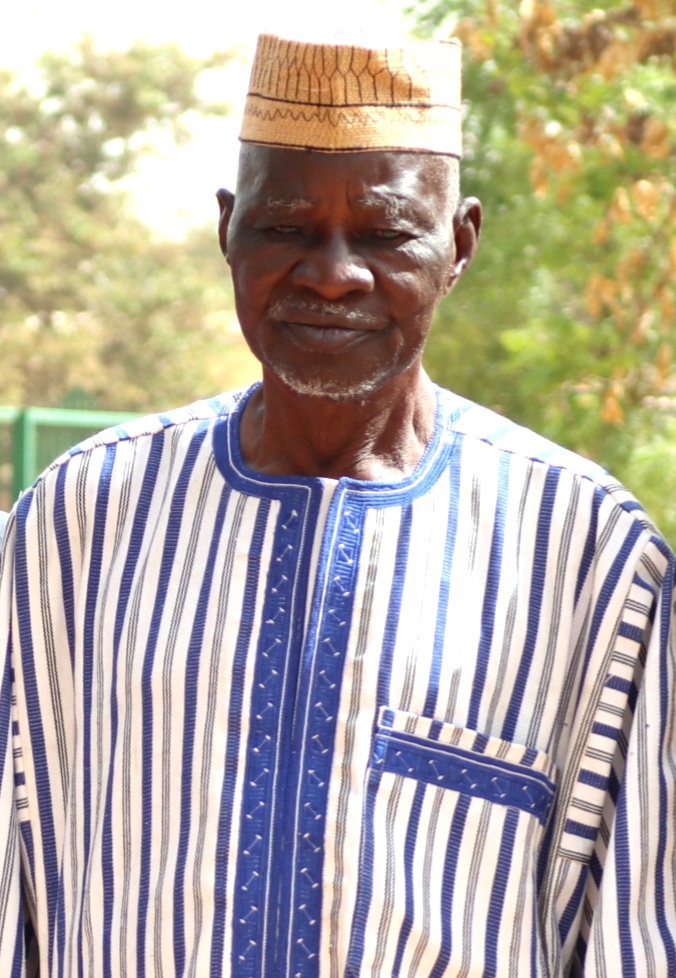
World Environment Day
“Praised be You, my Lord, through Sister Mother Earth, who sustains and governs us, and who produces varied fruits with colored flowers and herbs.” – Canticle of the Creatures by Saint Francis of Assisi
Tribute to Yacouba Sawadogo, a man who knew how to love the earth
Yacouba Sawadogo, a visionary farmer and hero from Burkina Faso, passed away on December 3, 2023, leaving behind a unique ecological legacy. His native village, Gourga, in the northern part of the country, witnessed a transformation of its landscapes thanks to his tireless efforts to combat desertification. Sawadogo created a forest on arid lands, reversing environmental degradation and inspiring entire generations.
The Courageous Decision
In the 1980s, Gourga faced accelerated desertification, exacerbated by hot winds and prolonged droughts. While many inhabitants fled in search of more fertile lands, Yacouba Sawadogo chose to stay. Coming from a lineage of farmers renowned for their ability to “bring rain” through special incantations, Yacouba decided to combine this ancestral knowledge with modern techniques to create a sustainable forest. Determined to revive his dying village, he began planting trees, defying skeptics who thought he was mad. His grove was set on fire several times by malicious individuals, but he persevered. This bold decision marked the beginning of a radical transformation in the region.
The Zaï Technique
To accomplish his mission, Yacouba rediscovered and improved the traditional agricultural technique of zaï. This method involves digging 30 cm deep holes in the soil during the dry season to plant crops. These holes are filled with organic matter to aid fertilization, retain moisture, and promote plant growth once the rains arrive. By combining this technique with stone bunds to slow water runoff and encourage infiltration, he created an environment conducive to tree growth and soil restoration.
The Renaissance of Gourga
Forty years later, the results are spectacular. The ecosystem has been rehabilitated. Yacouba Sawadogo’s forest now spans nearly 40 hectares, hosting over 20,000 trees of more than 60 species, many of which are medicinal. The renewed biodiversity includes animal species such as hedgehogs and deer. This forest has not only brought back wildlife but also created a microclimate favorable to local agriculture, enabling the inhabitants of Gourga to return to their village and successfully cultivate the land.
International Recognition
Yacouba’s efforts have been recognized far beyond his village. In 2018, he received the Right Livelihood Award, often referred to as the alternative Nobel Prize, and in 2020, he was honored by the United Nations as a “Champion of the Earth.” These accolades reflect the global impact of his innovative techniques and his commitment to combating desertification.
Living Differently on Earth
Yacouba Sawadogo demonstrated that local commitment and sustainable resource management can not only restore but also enrich ecosystems. His actions are a living model of resilience and innovation, providing valuable lessons for conservation efforts.
Yacouba did not keep his techniques to himself. He taught zaï and other sustainable methods to farmers across the Sahel and beyond, contributing to the fight against desertification. His son, Lookman, continues his work by promoting agroforestry and raising local community awareness about the importance of environmental conservation.
A documentary film titled “The Man Who Stopped the Desert” chronicles Yacouba Sawadogo’s journey and accomplishments.
